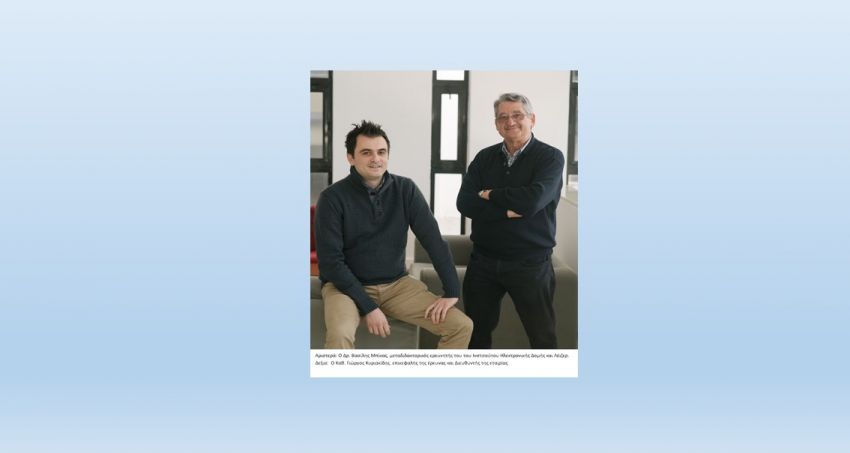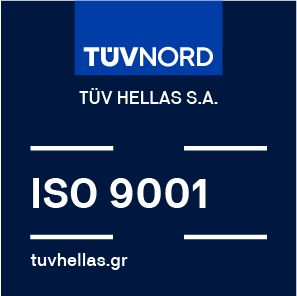
New Spin-off Company founded by FORTH for the production of photocatalytic materials that improve air quality
A new Spin-off company, that will leverage a patented technology developed by Prof. George Kiriakidis and Dr. Vassilis Binas, researchers at the Institute of Electronic Structure and Laser (IESL, www.iesl.forth.gr), was recently founded by the Foundation for Research and Technology-Hellas (www.forth.gr). This spin-off company, called PCN Materials, is financed by the European Investment Fund (EIF) through the venture capital and private equity firm Big Pi Ventures (https://bigpi.vc/).
The objective of PCN Materials is the production of innovative photocatalytic nanomaterials that are able to degrade gaseous and liquid pollutants, purify waste, disrupt non-polluting and non-toxic odors and degrade pathogenic organisms (bacteria and viruses); these photocatalytic materials are activated by means of visible light (both solar and artificial) and, thereby, significantly improve the quality of indoor air and assist in disinfecting health-sensitive areas. They are produced in the form of powder and are used as additives in various types of inorganic and organic materials (paints, coatings) to cover surfaces made of glass, plaster, cement, gypsum board, wood or metal, contributing mainly to indoor cleaning and disinfection, e.g., in hotels, hospitals, retirement homes, etc. Their action is long lasting and effective in fighting diseases related to the upper respiratory system, such as asthma and bronchitis. They have been proven to be extremely effective in the degradation of pathogenic microorganisms such as Staphylococcus aureus, Klebsiella pneumonia, Escherichia coli (E-Coli) and MS2 bacteriophage in wastewater, thus, contributing to fighting hospital-acquired infections.
These innovative materials are absolutely safe for humans and equally active when used indoors or outdoors, unlike existing technologies, which rely on UV-activated materials and are therefore only suitable for outdoor use.
The head of the research team and CEO of the company, Prof. George Kiriakidis, said: "It is very important that after long research efforts and two successful applications both in the tunnel of Malia (in collaboration with the Region of Crete) for the degradation of the exhaust gases more than 4 years ago as well as in the infirmary of SEAP (the Military Academy of Reserve Officers) over 2 years ago, there was an investment interest in establishing an innovative Greek company in Crete, focusing on improving the quality of life and on fighting infections, at a time when these issues are at the forefront of the World Health Organization".
Prof. Spiros Anastasiadis, Professor of Chemistry of the University of Crete and the Director of IESL, said: “We are particularly proud that an innovative technology developed at IESL is now finding its way to Society. This innovative technology was based on a long-term, high-quality basic and applied research conducted in the laboratories of the Materials and Devices Division of IESL, mainly funded by competitive research grants. The researchers, postgraduate students and postdoctoral fellows, involved in the research were guided by the principles of excellence in all their steps, which has been always guiding our research course. We expect that high quality research at IESL will lead to additional innovations that will respond to the ever-increasing challenges facing society today".
The headquarters of the company are located in the Anopoli Craftsmen Park (VIOPAN) of the Municipality of Hersonissos, only a few kilometers away from Heraklion International Airport, in a specially designed area where the pilot production of these photocatalytic materials has already begun.







